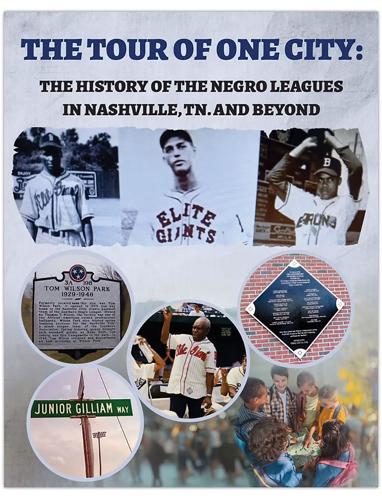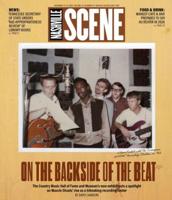Nashville’s International Black Film Festival has evolved into one of the year’s finest cinematic celebrations, spotlighting independent Black cinema nationally and globally and bringing to town key figures in the industry for panels and seminars. But as IBFF prepares for its 20th anniversary, founder Hazel Joyner Smith says there’s still plenty of work to do in the quest to provide opportunity and access to the entertainment world for aspiring performers, writers, directors and producers.
“Longevity isn’t really something that I’ve thought about,” Smith tells the Scene. “In the beginning I just had a keen interest in film and television, but didn’t know any of the key people. We just wanted to show it was possible for those in our community who wanted to get into the film and television business to do it. We’ve been so fortunate over these two decades that some of the greatest people who’ve made it have been willing to come and give us their insights, their feelings and their knowledge. When a Debbie Allen will sit with young people and tell her story, when you get people who’ve gone from doing short films to becoming executives, there’s such enormous value in that.”
When asked what has constituted IBFF’s biggest challenge, Smith says the answer plainly: money.
“Certainly whenever you’re putting together something of this magnitude, you deal with fiscal realities,” she says. “But really from the time that we did our first screening to now, the biggest challenge has always been continuing to do what it takes to convince those in our community with the talent and the desire to make movies or do television shows that they can do it with the right amount of determination and desire. That, plus getting them the access to the people who can provide them with the training and the knowledge. That’s always been our primary goal and is still our greatest challenge every year.”
This year’s screenings and panels reaffirm the festival’s theme: 20 Years Amplified: Voices, Stories, Vision. Events kick off with a pre-festival gala Friday at the Schermerhorn Symphony Center, as master actor Morgan Freeman joins the Nashville Symphony for the Symphonic Blues Experience. This program combines Freeman’s narration with performances by blues artists from his Ground Zero Blues Club in Clarksdale, Miss., plus the backing of the symphony. The festival itself will run Oct. 1 through 5, with entries in five categories: marquee and special features, narrative features, narrative shorts, and both long and short documentaries. Screenings and events are being held at multiple venues, including Belmont University’s R. Milton and Denice Johnson Center, the Hutton Hotel and Sunset Lounge at the Supper Club.

Among IBFF’s most highly anticipated presentations is Kayla Johnson’s Fatherless No More (7:30 p.m. Oct. 2), an inspirational and powerful documentary about the director’s father, former NFL player and Super Bowl champion Tim Johnson, an Orlando-based pastor who is inspired to live in an RV on Rikers Island. Both Johnsons, as well as executive producer and gospel legend CeCe Winans, will be available for a special Q&A following the screening. Earlier that day, IBFF will screen Rana Segal’s The Light of Truth: Richard Hunt’s Monument to Ida B. Wells (12:30 p.m. Oct. 2). This documentary chronicles sculptor Hunt’s creation of a monument to honor groundbreaking journalist Wells, and also offers a look at the struggles each faced in their lifetimes battling racist injustices.
Other vital films include A Tour of One City: Negro Leagues in Nashville, Tenn., and Beyond (2 p.m. Oct. 5), The Dichotomy of Hattie McDaniel (2:15 p.m. Oct. 5) and Beyond the Headlines: The NABJ Journey (3:15 p.m. Oct. 3). Additionally, there’s a delightful animated short (“The EKSPATS,” 12:30 p.m. Oct. 3) about an American family that relocates to Nigeria, and Tom Neff’s Clemmie G.: Unfiltered (2 p.m. Oct. 4), an insightful look at Clemmie Greenlee’s 21-year fight for community empowerment and environmental and social justice. IBFF has also scheduled several intriguing panels, ranging from a look at how filmmaking has blossomed throughout the South to the rise of short-form cinema, and the evolution of youth participation and involvement in social protest and political change.
“One thing that’s still very clear is there’s so much work left to do,” Smith says. “There’s such a vast amount of talent in this community that still hasn’t been tapped, and we’re always seeking to get them involved, get them interested and see what happens. We also continue to discover how much we don’t know yet, but we’re always learning, always trying to bring more information and knowledge to the community, and offer access and opportunity for an audience that’s historically been underserved.”
Find a full schedule of events and purchase your tickets or passes at ibffevents.com.







